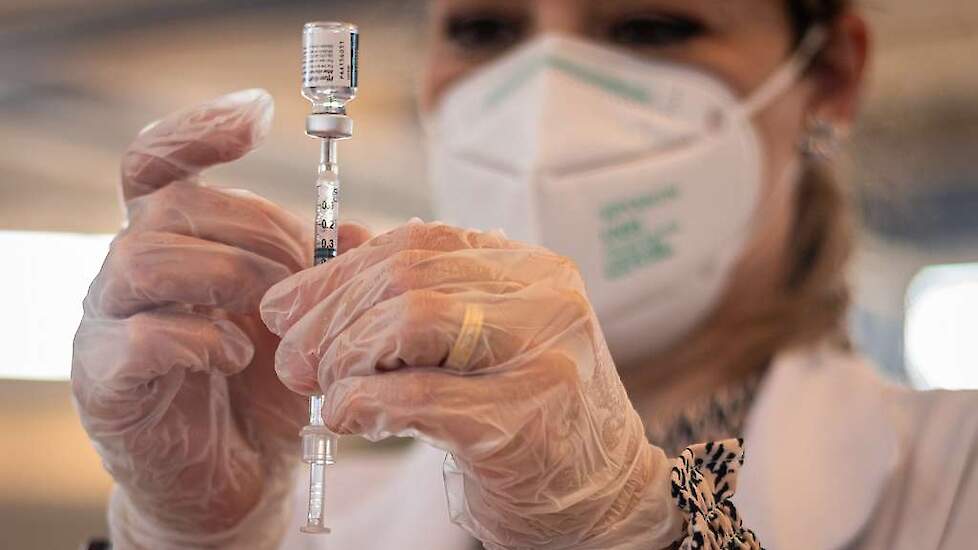New research shows that effectively controlling common animal diseases could be a sustainable way to tackle climate change. Every animal lost to a preventable disease also contributes to greenhouse gas emissions. Animal diseases also reduce the productivity of a livestock farm.
Animal diseases have a devastating impact on livestock farming. For example, in 2022, 131 million domestic poultry died or were killed due to bird flu. However, controlling livestock diseases can reduce meat (or milk) yield losses at the farm level, improving food security, reducing greenhouse gases and improving the sustainability of the livestock system.
This is what researcher Judith Capper, professor of sustainable livestock farming at Harper Adams University, states in her study ‘The impact of controlling diseases of significant global importance on greenhouse gas emissions from livestock production’ (impact of controlling diseases of significant global importance on greenhouse gas emissions from livestock farming. The study indirectly indicates that countries, such as the Netherlands, can make a positive contribution to climate with effective disease control and vaccination policies on livestock farms. In addition, it advocates that bird flu vaccination should be taken up internationally.
CO2 emissions 16 percent lower
Diseases with high mortality rates, such as classical swine fever or bird flu, require farmers to use more resources and breed additional animals to maintain food production. According to Capper, this will lead to more greenhouse gas emissions. However, effectively combating common animal diseases through instruments such as vaccination appears to be a sustainable way to tackle climate change. According to the study, combating ‘highly pathogenic’ bird flu with vaccines would reduce greenhouse gas emissions by almost 16% per year per kilogram of meat, without the need for culling.
PRRS among pigs
Using vaccines to prevent disease also supports better food security and livelihoods. PRRS is endemic in pigs in many countries, including the Netherlands, the US and China. The virus does not always kill infected pigs, but it does limit production on pig farms because it affects reproduction and growth. In affected pig herds without a vaccination policy, up to 19 percent of sows fail to produce piglets and 75 percent of young pigs die before weaning.
Every 100,000 sows spared from PRRS infection would prevent more than 420,000 tons of greenhouse gas emissions. This is equivalent to taking more than 230,000 cars off the road and means greenhouse gas emissions per kilogram of pork would fall by 22.5 percent.
Control outbreaks
Similarly, eliminating foot-and-mouth disease where the disease is endemic (many low- and middle-income countries in Africa and Asia) would reduce emissions by more than 10 percent per kilogram of product. More than 80 percent of farms in low-income countries are smallholders or so-called ‘back yard’ farms. This type of farm generates more greenhouse gas emissions per unit of meat, milk and eggs than commercial farms due to lower productivity.
The farms in these countries are sources of disease. According to the researcher, this means that the threat of a global outbreak – and the associated implications for greenhouse gas emissions – is never zero. These sources arise due to a lack of disease monitoring, infrastructure, trained personnel and available medicines to detect, record and control livestock diseases.
Undermine food security
Nevertheless, controlling endemic livestock diseases through vaccination reduces the risk of outbreaks across species and regional boundaries. Controlling Infectious Bronchitis in chickens, where the disease is endemic among poultry on ‘back yard’ farms, can reduce emissions by more than 11 percent while limiting the risk of an outbreak.
Outbreaks can undermine global trade, production and food security. An economic analysis of an outbreak of African swine fever in China shows that low pork supply would increase global pork prices by 17 percent to 85 percent. The findings also show that low supply would have significant impacts on the affordability of other meats.
Capper also indicates that vaccination will help tackle the threat of antimicrobial resistance, which poses a major threat to human health around the world. Research estimates that antimicrobial resistance was linked to approximately 5 million deaths worldwide in 2019
2024-01-15 16:08:10
#Vaccinating #animals #common #diseases #helps #climate #change

